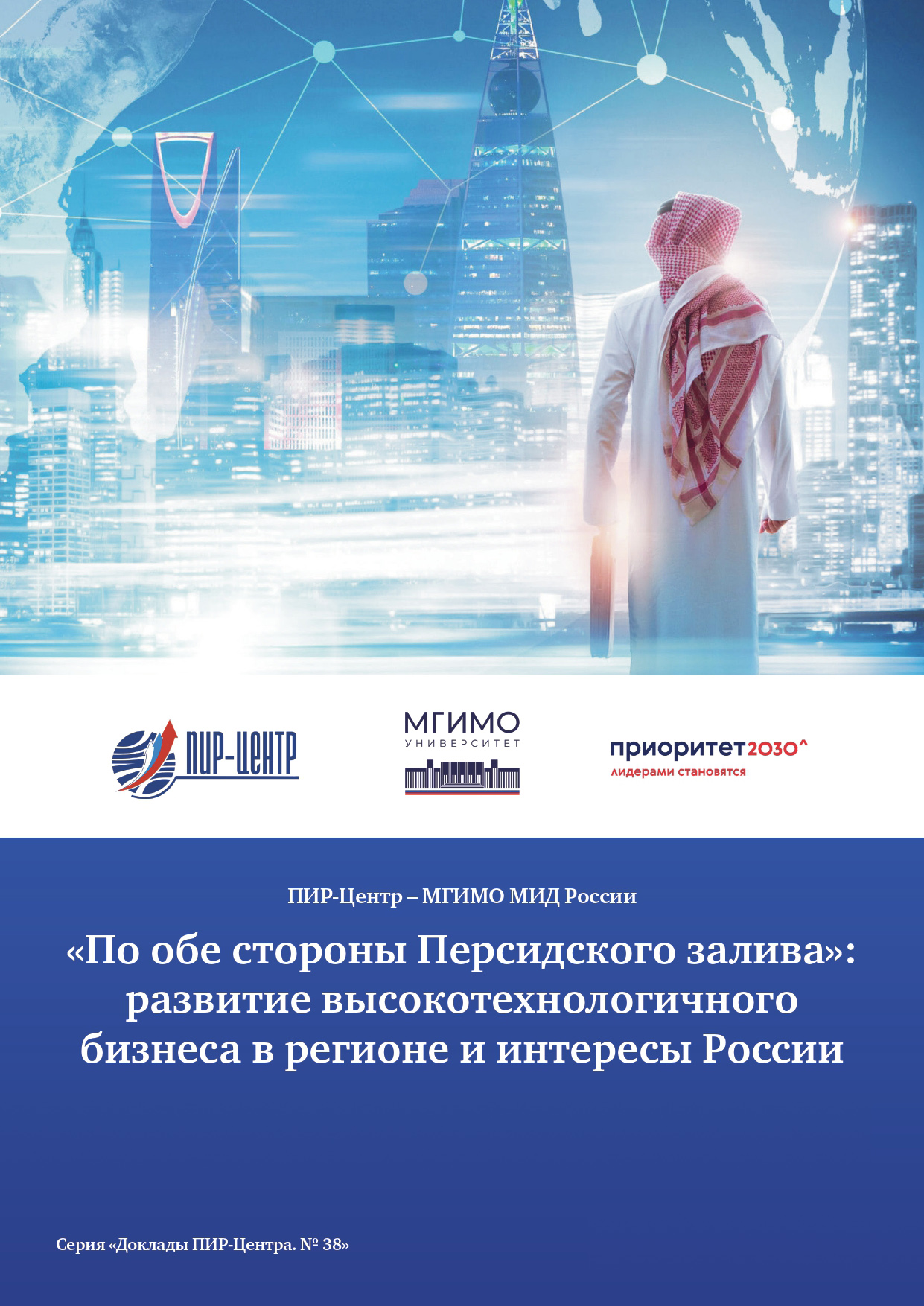PIR Center published a new analytical report, dedicated to the potential of the Persian Gulf states in the field of high technology and the prospects for promoting Russia’s interests in this area. The report was prepared by Mr. Leonid Tsukanov, Consultant of the PIR Center`s Global & Regional Security: New Ideas for Russia Program under the scientific supervision of Dr. Vladimir Orlov, PIR Center Founding Director, Professor at MGIMO University.
Against the backdrop of ongoing global transformations, the role of the Middle East in the system of regional relations is gradually changing. There is a consistent trend towards developing competencies in emerging technologies and technological independence. The profile market of the Gulf states is expanding most dynamically, which is due to the desire of regional powers to take advantageous positions in the new high-tech world.
Russia, like other global players, shows increased interest in developing the region’s potential, seeing it as an opportunity to achieve its own long-term goals, including entering new markets. In this context, questions related to assessing the potential of regional powers in the high-tech industry (as well as evaluating potential points of intersection with Moscow’s interests and opportunities) become particularly relevant and significant.
The research focused on studying several categories within the high-tech group, to which Moscow pays increased attention:
- cybersecurity and emerging technologies (cybersecurity, fintech industry, robotics, cryptocurrency operations);
- energy (renewable energy sources, nuclear energy);
- space research (satellite and space programs);
- biotechnology (advanced medical technologies).
It is also worth noting that, due to the specificity of Russia’s interests in the region, the scope of its technological cooperation is not limited to the Gulf Cooperation Council states (the so-called Monarchies of the Gulf). In this regard, the classic boundaries of the concept of the Persian Gulf were slightly expanded: in addition to the Monarchies of the Gulf (Saudi Arabia, UAE, Qatar, Oman, Bahrain, Kuwait), the analysis also includes Iran and Iraq.
Methodological foundation of the research contains materials from international organizations, reports and documents from regional ministries and agencies, media materials, and statistical databases. Various methods of scientific inquiry were applied, such as systems analysis, event analysis, modeling, SWOT analysis, case-study, and others.
This analytical report was prepared within the framework of implementing the PIR Center and MGIMO University joint project “Global Security, Strategic Stability, and Arms Control” under the auspices of the Priority-2030 Strategic Academic Leadership Program.


